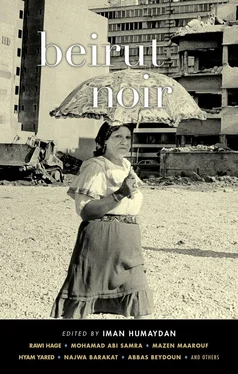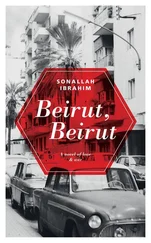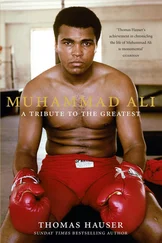I didn’t know if I should visit Adil Uliyyan, or if we should even meet again. After all that time that had passed, it would be like a conspiracy, a meeting of the smuggler and the thief. What would the two of them have to say to each other? What could members of the war generation have to say to one other? Who will they accuse if time turns against them, if they end up as miserable criminals, miserable smugglers, miserable thieves? They won’t accuse either God or destiny, since they know that they are acting without either of them. They won’t accuse anyone of treachery, for this is what they have to expect. They have gone so far with their own treachery that they have even forgotten what treachery is.
Despite all this, I still wanted to visit Adil Uliyyan. I thought that perhaps he had something to give back to me. I thought that he owed me something; I didn’t know what it was but the time we spent together had somehow indebted him to me. When I first met him, he was writing, or imitating really, using the very same hand to do it that he’d used to empty bullets into the customs officer’s head. I had a shameless desire to hear him narrate this... a shameless desire that I was ashamed of when I realized it. I wanted my roaming comrade to narrate it to me as though it were a lie that I couldn’t possibly believe even if we’d been sitting in a holy place that compelled us to tell the truth. To tell it like he invented his love story with the curate’s daughter.
Can we go back to those places that prompt us to the truth, and still lie? Can we narrate our lives as though they didn’t happen? They did happen, but what is left of them in our souls is no more than a lie.
I decided to go visit Adil Uliyyan.
Rweiss isn’t far away; it’s a rocky cliff at the edge of the village. When I arrived, I didn’t have to ask where Adil’s house was. There were three floors with wraparound balconies and tinted glass, crowned with red tiles. Inside the flower garden was a wall and in front of the wall was a square of pavement where three cars were parked — a Cadillac, a Chevrolet, and a Peugeot. I rang the bell and a Sri Lankan servant looked down at me from the balcony. I asked her to tell Mr. Adil that Jalal Mazhar was here. After that, the gate opened and I entered, walking toward the house on a path paved with cobblestones.
The servant opened the door and led me to the spacious living room, which was surrounded by plate-glass windows on all sides. The sofas, tables, and walls were all gilded. After a bit, a taller-than-average, well-built woman, wearing a tight-fitting green dress, came down. Her black hair hung to her shoulders. Scrunching her eyebrows, she said that she was Rosette — Adil’s wife. When she realized that I didn’t know who she was, she said that she was from the village and had heard all about me from Adil. She’d married young, moved to Beirut, and from that time on seldom returned to the village, so she’d never met me. But she knew who I was. She sat down in front of me on a gilded sofa, crossed one leg over the other, and offered me a cigarette from her pack of Kents. When I refused, she took the cigarette herself and lit it. She told me that Adil was in his room on the second floor; he’d just finishing shaving and would be down shortly. I mumbled a nervous question about his health and she replied that the doctor had reassured them — it would definitely be a long process, but the illness had been found early and he was responding well to the treatment.
Rosette showed me around, answering my questions about how the house was organized. As I had guessed, the first floor was essentially a huge living room with groups of sofas scattered throughout with a bar at the far end. The second floor was for the family — bedrooms, a dining room, and a family room. The third floor had a large kitchen, a pantry, a sitting room, and guest rooms. We went up in a glass elevator. This was a vacation home, Rosette started to tell me. I could only imagine what kind of palace the family lived in during the rest of the year. We didn’t encounter Adil on our tour around; he was still in the bathroom. Back on the first floor, I expressed the desire to wander around the flower garden, and Rosette seemed eager to accompany me. I looked at the flowers; the gardener readily volunteered to name the ones I couldn’t identify. We went back inside and sat down in the living room.
After a while we heard the elevator door open. Rosette and I stood up and stared at it. A tall man I didn’t recognize stepped out. I assumed that this was Adil Uliyyan. He was the same height and had the same dark coloring that I remembered. But those two things were all he still had. He was mostly bald with little hairs scattered across his head. His face was covered in wrinkles; deep trenches in his face gave it a permanent scowl. He walked extremely slowly, one step after the other. He made a great effort to lift his torso, though this couldn’t hide the fact that his back was starting to hunch over. Rosette hurried to his side but when she tried to hold his hand he rejected her with a wave. I felt hesitant about approaching him, so I let him walk over to me. When he reached me, he stopped for a second to secure his footing. He extended his hand to me with the same deliberateness. That’s when I noticed how emaciated he was.
He said, “Welcome,” nothing more. He was facing a round sofa and started to fold his body slowly to settle down on it with exaggerated composure. He wasn’t swaying, but he looked like someone who was trying hard not to fall down. His eyes were sunken and moved in their sockets with the same slowness as his body.
“The war... took us... young men... and... alienated us so often... from where we came... afterward... left us back... on our trash heaps... on purpose... you... they towed... your boat... for you... I... I... as... you see... I was... I became... a cripple.”
Adil tried to appear as if he were in charge of his mind and body. As he sat on the sofa he recuperated somewhat. He was exercising his control over the situation. I don’t know what he’d prepared for this meeting but he’d certainly known about it beforehand from his brother’s son Samir. He was definitely struggling to appear worthy of his mansion, but his words seemed to make him feel regretful, his eyes moist with tears that wouldn’t fall. Then he asked me, “Do you still read? I still write. Rosette, bring me the file.”
After his tearful moment, she was pleased to comply. Rosette walked upstairs to the second floor and came back with two thick, leather-bound volumes. Written on the first one in gold letters was, Secret Conversations of the Dust. The Tenth Floor was written on the second in the same lettering. Adil handed me both books, then took out a thick notebook that contained reviews of his books. I flipped through it and my eyes passed over words like “the great novelist,” “the creator,” “the innovator,” “He delves into the depths of the human soul,” “soaring,” “an incredible imagination,” “penetrating wisdom,” “masterful philosophy,” “modernity and postmodernity,” “innovation,” “avant-garde literature,” “the revolutionary soul,” “destruction and ruin,” “deeply rooted structure.”
The pages I was holding in my hands were replete with all kinds of praise and commendation, though the clippings displayed a pitiful absence of either well-known or meaningful names. Adil then handed me his treasure — a stack of translations into French, English, Italian, Spanish, and German — not with prestigious publishers, but that doesn’t matter. By all accounts, Adil Uliyyan had been able to start from nothing and put out a book. It cost him less than his garden did. He bought the book and its publishers for a price less than what he paid for his fleet of servants. I thought that everything in the world must be off-kilter if it occurred to someone like Adil Uliyyan to play at this kind of game.
Читать дальше












